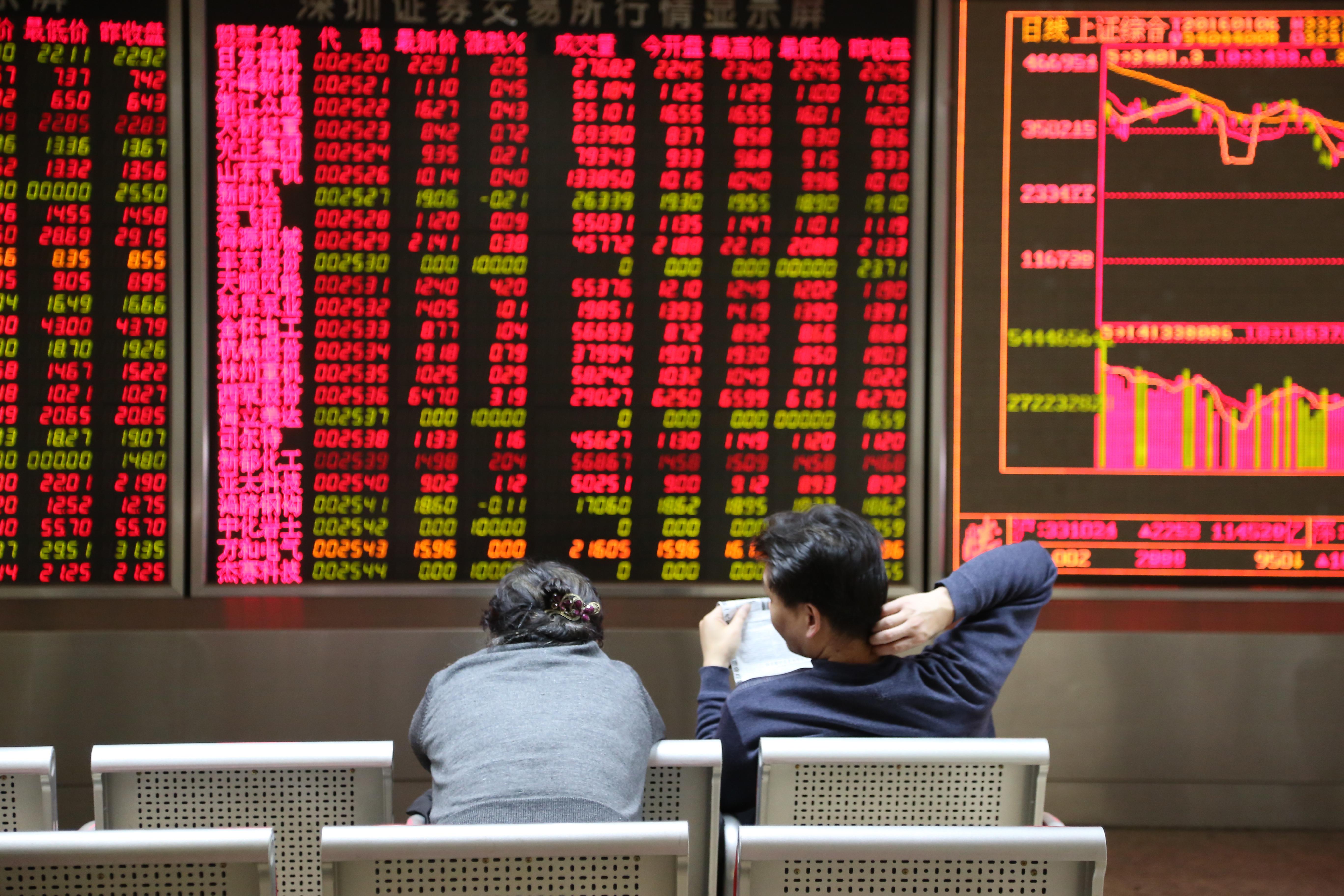Investors around the world are flipping out once again over problems in China, where stock markets were forced to close after a mere 29 minutes Thursday thanks to new rules that halt trading when shares crash too far.
Why the tumult? There are two big stories behind China’s abortive trading session and the global sell-off it’s inspiring. The first, which is mostly worrisome for the People’s Republic, is about the government’s inept attempts to manage its stock markets. The second, which is worrisome to the whole world, is about the specter of China’s slowing economy.
Let’s start with the ineptitude. This week, China debuted a new “circuit breaker” system that was designed to bring calm to its ever-chaotic market and is accomplishing exactly the opposite. When shares on a benchmark index fall 5 percent, trading pauses for 15 minutes so everybody can stop to contemplate what’s going on and maybe pop a Xanax.* After a 7 percent drop, buying and selling end entirely for the day. While this is somewhat similar to the way American markets work, the range within which stocks are being allowed to trade is apparently too small for China’s markets, which are prone to big swings. When stocks have started falling this week, investors have responded by rushing for the exits, knowing it might not be long until shares fall below the 7 percent mark and the door shuts on trading. Once you account for Thursday’s 15 minute breather, traders only had an EP-length 14 minutes to sell, sell, sell. As one Chinese fund manager succinctly summed up the situation to Bloomberg: “This is insane.”
But why are shares falling in the first place? One reason is that China’s ban on selling by large shareholders, put in place after this summer’s market crash, is expiring this week, though regulators are replacing it with lighter limits that should prevent a mass liquidation. The more important issue is growth. China’s economic engine is widely acknowledged to be slowing down. But because the country’s GDP stats aren’t exactly reliable, everybody can only guess how bad things really are. That makes people exceptionally jittery. Earlier this week, markets were spooked by disappointing manufacturing data. Thursday, they panicked thanks to the falling value of the yuan, which the central bank set Thursday at its lowest level since March of 2011. That suggests the government may be trying to give its economy a jolt by weakening its tightly controlled currency to boost exports.
In other words, it looks like the Chinese government is nervous. And that makes investors around the world nervous. The most obvious concern is that a severe Sino-slowdown will simply drag down world growth, since China’s appetite for food, energy, and raw industrial materials drives a good chunk of the global economy (just ask poor, recession-addled Brazil). But there are other, more speculative issues that might be causing agita. For instance, there’s the possibility of a currency war. If China continues cheapening the yuan, its Asian neighbors might follow suit to keep their own exports competitive. But when countries devalue, global investors often pull out their cash and move it elsewhere (after all, if you own a stock priced in Japanese yen, and the yen is falling, you’re basically losing money). So it’s possible to envision a scenario where China sparks a currency race-to-the-bottom that causes Asian markets to crash.
But again, that’s all very speculative. For now, the bottom line is that China looks troubled, and that leaves the rest of the world anxious. Plus, its own stock market is comically insane.
*Correction, Jan. 7, 2016: This post originally misspelled Xanax.
